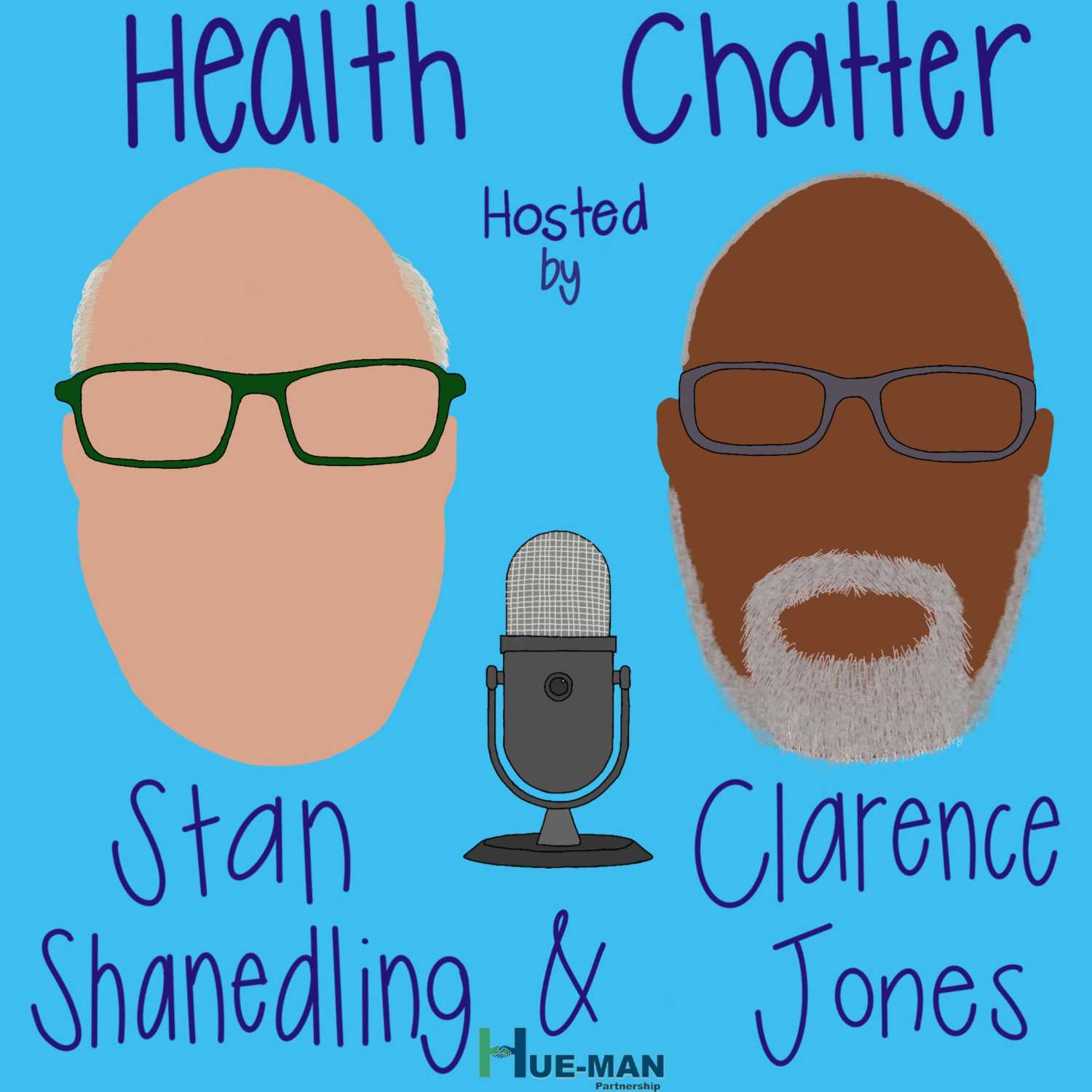Aug. 19, 2022
Cardiovascular Health
The player is loading ...

Stan and Clarence dive into cardiovascular health with Dr. Stephen Kopecky and Justin Bell.
Research
- Heart disease is the leading cause of death for men, women, and people of most racial and ethnic groups in the United States.
- One person dies every 34 seconds in the United States from cardiovascular disease.
- About 697,000 people in the United States died from heart disease in 2020—that’s 1 in every 5 deaths.
- Heart disease cost the United States about $229 billion each year from 2017 to 2018.3 This includes the cost of healthcare services, medicines, and lost productivity due to death
- Coronary Artery Disease
- Coronary heart disease is the most common type of heart disease, killing 382,820 people in 2020.2
- About 20.1 million adults age 20 and older have CAD (about 7.2%).2
- In 2020, about 2 in 10 deaths from CAD happen in adults less than 65 years old.2
- Heart Attack
- In the United States, someone has a heart attack every 40 seconds.
- Every year, about 805,000 people in the United States have a heart attack. Of these,
- 605,000 are a first heart attack
- 200,000 happen to people who have already had a heart attack
- About 1 in 5 heart attacks are silent—the damage is done, but the person is not aware of it.
- Population Differences– Heart disease is the leading cause of death for people of most racial and ethnic groups in the United States, including African American, American Indian, Alaska Native, Hispanic, and white men. For women from the Pacific Islands and Asian American, American Indian, Alaska Native, and Hispanic women, heart disease is second only to cancer
- Minority and low socioeconomic groups were strongly associated with poor CVH and explained 51% of the state‐level variation in poor CVH
- At Risk– Risk Factors
- High blood pressure, high blood cholesterol, and smoking are key risk factors for heart disease.
- Several other medical conditions and lifestyle choices can also put people at a higher risk for heart disease, including:
-
Cardiovascular diseases affect nearly half of American adults, statistics show
- https://www.heart.org/en/news/2019/01/31/cardiovascular-diseases-affect-nearly-half-of-american-adults-statistics-show
- How to better CV Health– Prevention
- Moving
- Quit smoking
- Lose weight
- Heart healthy foods
- Chocolate
- Overeating
- Dont stress
- CVH in other countries, how do we compare?
- Outcomes in general are better everywhere else, why? For the reasons above
- Acute Treatment https://www.nhs.uk/conditions/coronary-heart-disease/treatment/
- Medication
- Surgery
- Heart transplant
- Disease Management https://www.cedars-sinai.org/programs/heart/clinical/general-preventive/disease-prevention-management.html
- Diet: Eat heart-healthy foods. Fuel your body with vegetables, fruits, whole grains and fish. Reduce your intake of saturated fat, trans fat and cholesterol. Limit your salt intake to no more than 1,500 milligrams per day if you have heart-disease risk. Learn more about Cedars-Sinai's Nutritional Counseling Program.
- Exercise: Regular aerobic exercise helps manage your risk of heart disease. Just 30 minutes a day of moderate intensity 5 days a week is sufficient, according to the American Heart Association. To lower blood pressure and cholesterol, increase your goal to 40 minutes of moderate- to vigorous-intensity activity 3 to 4 times a week.
- Stop smoking and limit alcohol. Don't hesitate to seek assistance through a smoking cessation program that can provide extra tools and support. Alcohol consumption should be limited to no more than 2 drinks per day for men and no more than 1 for women. More than this amount increases risk of heart disease, high blood pressure, stroke and other diseases. Learn more about Smoking Cessation Support at Cedars-Sinai.
- Get enough sleep. Lack of sleep has been linked to higher blood pressure and higher risk of stroke and heart attack. Aim for 6 to 8 hours a night.
- Know your numbers. Know your blood pressure, cholesterol and blood sugar levels. Keep them in the healthy range.
- Medications: Discuss your risk with your doctor. Medications such as statins and aspirin are powerful tools that apply to certain patients. Your physician may recommend that you take medications to control high blood pressure and diabetes.
- Policy https://www.heart.org/en/get-involved/advocate/policy-research/advocacy-fact-sheets
- Sugary drink tax
- Reducing sodium in US diet
- Universal health care– single payer plan



